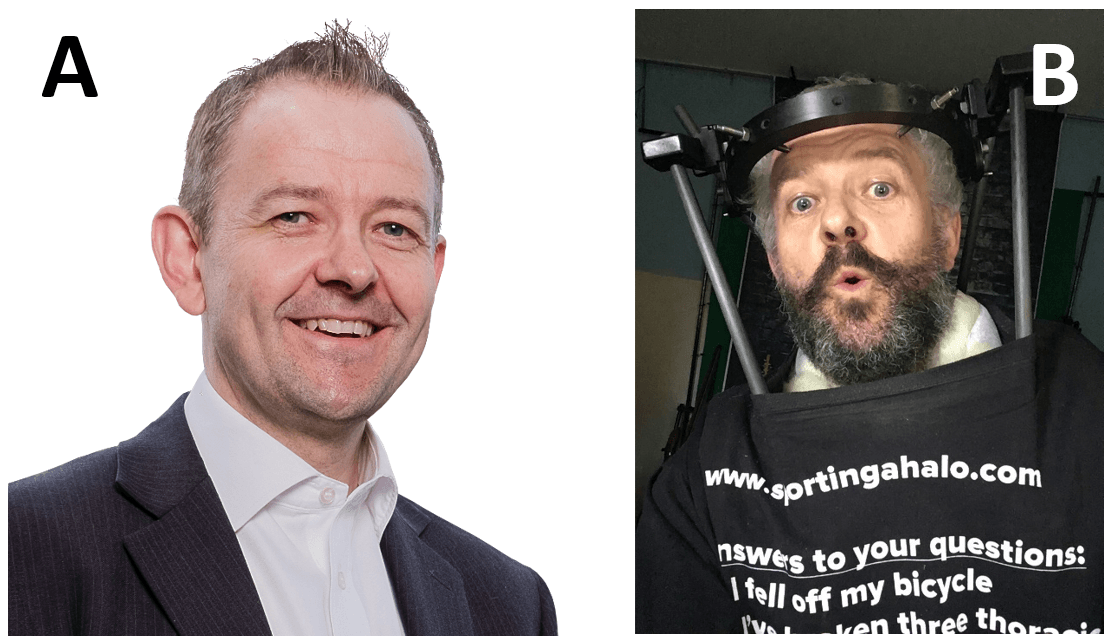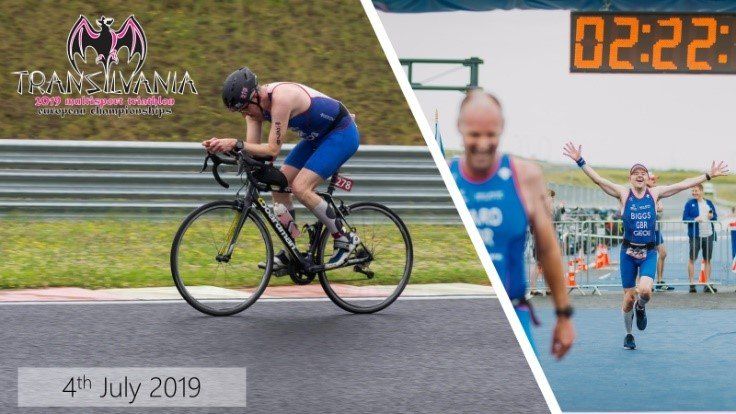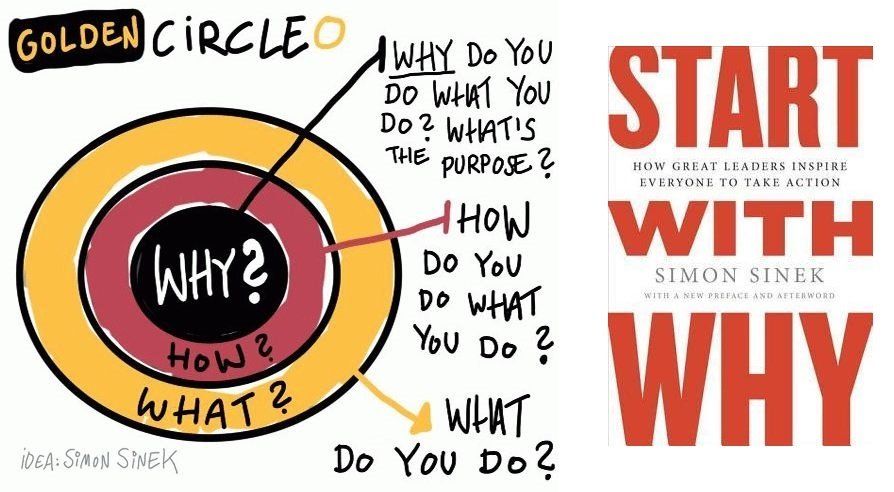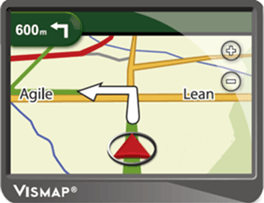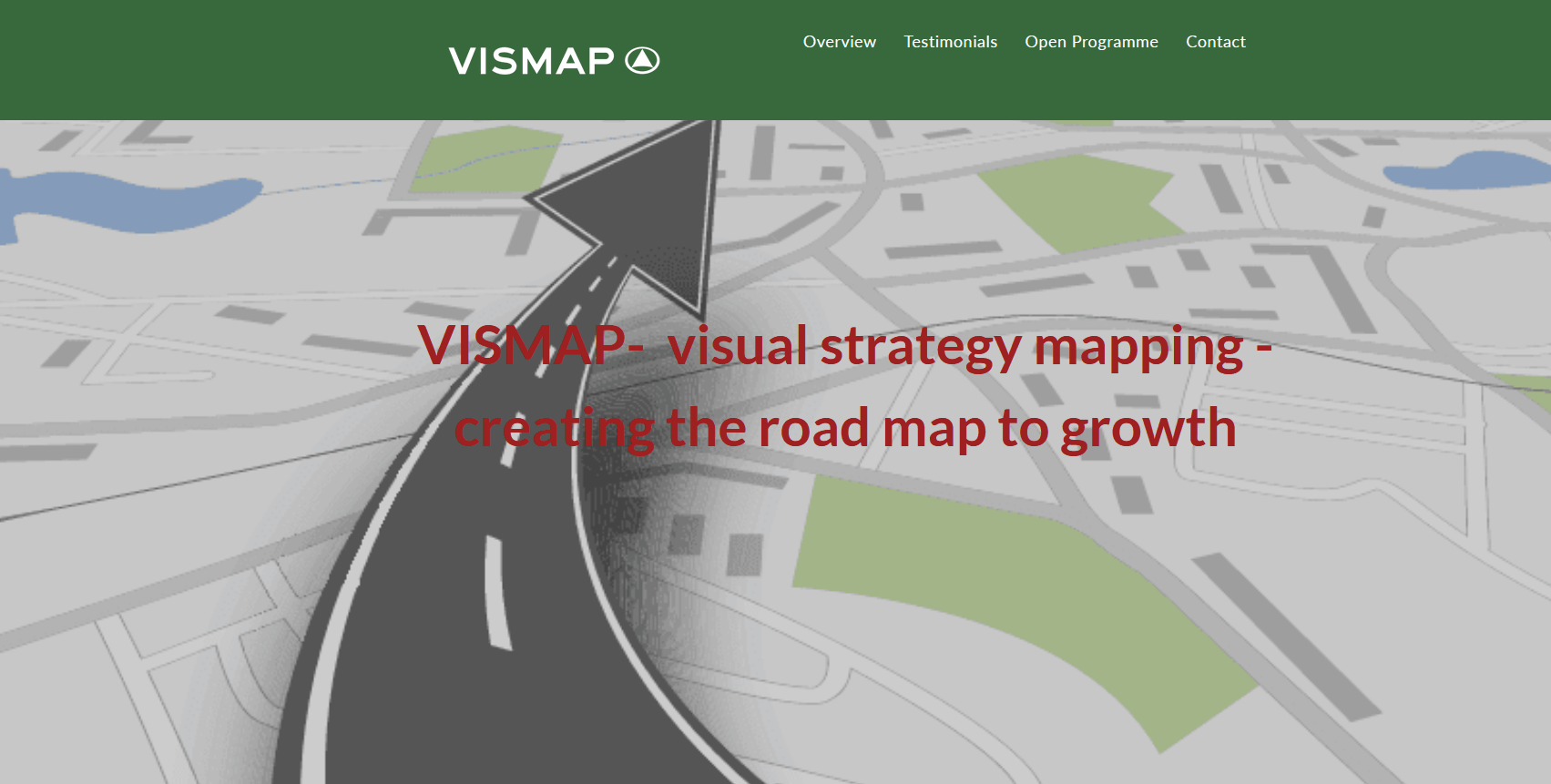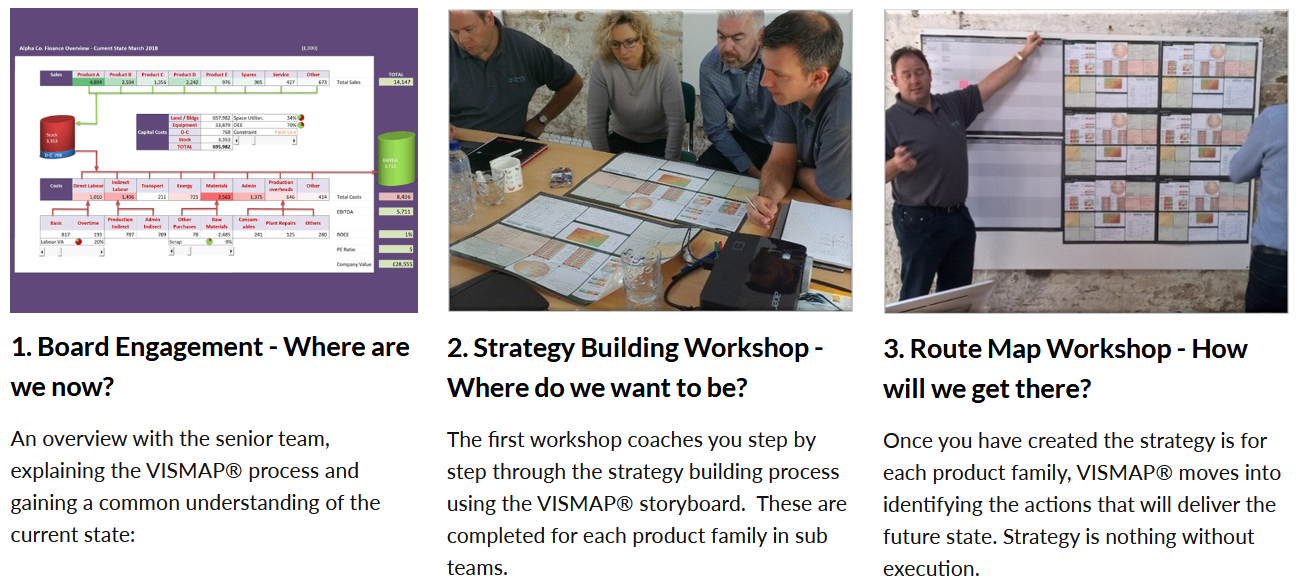Why planning is good, but something unplanned will happen!
“Start With Why” by Simon Sinek has helped me to frame my plans in the face of adversity. When things go ‘wrong’ for your organisation, a sense of purpose and a clear destination are vital. And things will go wrong!
“The best-laid plans of mice and men oft go astray” is a popular idiom used to describe the propensity of circumstances to make even the most carefully considered forecasts, budgets and task lists redundant.
Or, as they say in the military – “ No plan survives first contact with the enemy ”.
So, it’s logical to ask why, in our organisations and personal lives, we plan and create static budgets and plans when there’s a 100% chance they will be wrong, at least in part?
A painful personal lesson
I’ve just had a very personal lesson about the importance of having a sense of purpose and destination.
I’ve learned that unless our plans and budgets are centred onto a simple sense of purpose, when something unplanned happens we will either find ourselves adrift without an action-plan or stress ourselves to carry out an unachievable and ill-focused budget.
And something unplanned will inevitably happen. I refer to the comparison between these two photographs:
(A)Normal Andy
(B)Andy with a beard and a hi-tech halo vest screwed into his head
In August 2019 I changed from state (A) to State (B) and my plans for the Autumn were thrown into disarray.
What happened and what have I learned?
My personal plans…
I’ve found that unless I think ahead for how I want to divide my time up, I don't end with enough time to do the things that are important to me (which includes spending time with my family!).
Sport and fitness are important to me. In the past five years I’ve got seriously into Triathlon. And I mean SERIOUSLY – I’ve competed For the British Triathlon Age Group team at World and European Duathlon championships in each of the past three years.
I’ve had detailed training plans which involved many hours of running, biking and gym work leading up to the events. After returning from July's European Championships in Transylvania (see picture below) I had just begun to plan my winter training ahead of the 2020 season.And so, on 22nd August 2019 on a quiet road to the west of Durham I was training with my Triathlon club buddies, riding up and down thehill pictured below.
On the fifth time down the hill, heading towards where this photo was taken, I had just started to brake from around 30MPH when I suddenly felt a wobble underneath me. I subsequently discovered that this was due to a sudden decompression of my rear inner tube, which had split.
Subconsciously I tensed up. However, because my hands were already gripped on my brake levers I applied just a little bit too much pressure. I locked up my front tyre and pitched over my handlebars, landing headfirst on the tarmac.
It was clear from the blood on my face and hands that I'd done myself some damage but miraculously I had not lost consciousness and, finding I could move my limbs without pain, it initially didn't seem too bad.
However, I had an ache in my upper back and neck and when I was finally assessed at the hospital they informed me that I had broken three thoracic vertebrae.
I was lucky not to have suffered a brain injury. I was lucky not to have been paralyzed. If I hadn't been wearing my helmet (above) then I would certainly have been either dead or more catastrophically injured.
My injuries were serious but mercifully the spinal injury doctors felt that they could fit a halo brace to my head/back to immobilise the broken bones, rather than undertaking surgery to pin them together.
And so here I am – looking like an alien/monster from a science fiction programme and with all my athletic plans in tatters.
How do I feel about that?
Clearly this is not an outcome I was looking for. But, because I already had an overall plan i.e. a
sense of purpose in my life, a setback like this has not fundamentally derailed
me. I’ve had to put my fitness training
on hold and reschedule a large number of work and social commitments, but my
objectives are still my objectives and my direction is still the same.
My fundamental identity and purpose as a human being is still intact.
So – enough about me – how does what I’ve learned apply to organisations?
Start With Why…
While I’ve been laid up I’ve been reading “Start With Why” by Simon Sinek, and this book helped put some words and application thoughts around the feelings I described above.
There are plenty of summaries out there, including the one that provided this image.
My takeout is that the most admired (and arguably successful) organisations aren’t driven by what they do, or how they do things, but they have an overarching sense of purpose and mission.
If all they do is “build useful products and offer great customer service at an affordable price”, then there is very little to distinguish them in the marketplace or fire up sustainable employee passion.
Sinek described this as the “Golden Circle”, with the centre being “Why”. An organisation must start with a clear understanding of ‘ why ’ is exists before it can sustainably decide ‘ how’ it is going to go about its business and ‘ what’ nuts and bolts activities will make things happen.
Why InfoSuperstar?
My InfoSuperstar business “why” is that I want to be valued in using my experience and take pleasure in seeing individuals implement effective, visual, efficient and strategically-aligned measurement systems –so that their organisations can grow and create prosperity and social impact.
I may have fallen off my bike, but so far as my business goals are concerned, nothing has changed.
But some change of plan is inevitable - how should we react?
All organisations will at some stage face a challenge over their business model. Either because of a technology shift or competitor action which challenges their market. Or even because of a market opportunity that they begin to exploit which means they have to adapt to grow.
I recently spoke at a seminar on the subject of removing the handcuffs of annual budgeting. I asked how long it typically took for an annual financial budget to be out of date. Opinions varied, but everyone agreed that it was pretty short. When one attendee said “one day” there was more than a murmur of agreement!
The key point is that most organisations understand that they need to plan, and they create budgets. And that is not bad.
But in many cases, just like the military idiom, their budgets and tradiional business plans do not survive first contact with the marketplace . This need not be because of adverse circumstances - What happens to an annual budget when you win a huge new customer in the first month of the year that you had not budgeted for?
Running our Organisations on Satnav/GPS
Therefore, maybe it’s time to run our organisations like we drive out cars when using Satnav (GPS to my American friends).
1)First of all, we decide that there is a reason why we are making a trip – why we’re going.
2)Secondly having established where we are, we define and locate our destination.
3)We then plan out a route (or rather let the satnav do it for us) - the fastest or shortest path, avoiding predetermined hazards.
4)However, we must recognise something can go wrong on your car
journey – a wrong turn, or a traffic jam or road closure that you hadn’t anticipated.
Or you decide to take a scenic detour. The best GPS systems take account of that and
re-route you.
When things change many businesses fail to properly implement a re-routing step because they end up being a slave to their original plan or budget.
Recognising this, I’ve started to pull together InfoSuperstar content on my blog and in speaking engagements (with online courses coming soon!). I’m seeking to help organisations gain a clearer sense of their where they are at using business dashboards and to create tools which help them to plan their future and ‘re-route' if necessary.
I’ve also started to connect some of this together in my work at VISMAP ( www.vismap.net ).
This is unashamedly a plug for something I’d like you to buy into – but only because I really believe that there are many organisations out there (like yours?) who would save a lot of time and money if only they could generate simple, flexible plans that their whole team can get behind.
And part of my 'why' is that I believe that I can help...
VISMAP – Satnav/GPS for your organisation
Similar to my InfoSuperstar purpose, VISMAP exists because the founders (of whom I am one) have a passion to create business growth and prosperity and thus employment opportunities.
We started in the North-East of England, a region rebuilding its economy after the demise of its historic dependence on coal, steel and shipbuilding. We want to do our bit to make enterprise work for the wider region, through the growth of businesses who have a clear sense of ‘why’.
At VISMAP, using our business
leadership experience and MBA knowledge, we’ve created a software-supported
workshop process to help leadership teams to define their strategy quickly and
simply, in the light of their “why”.
We typically run workshops for entire leadership teams as an ‘in-house’ process:
*NEW* - Open Programme 2019
Commencing 26th November 2019, we’re also running an open programme ( 5 days over 10 weeks) to allow individuals from a more diverse range of organisations (including SMEs) to access our product, create a visual strategy and accelerate their growth.
Further details are here , but if either the in-house or open programme is of any interest, why not drop me a line for a no-obligation chat?
It’s as easy as riding a bike…. I promise to try not to fall off his time!
INFOSUPERSTAR IS THE TRADING NAME OF REFLECT BUSINESS SOLUTIONS LTD, 47 WEARSIDE DRIVE, DURHAM, DH1 1LE UK | COMPANY REG No (ENGLAND AND WALES): 8672028


